InsuranceDrive
YOU MUST PROTECT WHAT'S IMPORTANT TO YOU
InsuranceDrive is all about insurance, simple as that. We know it’s boring stuff and people don’t like to think about dying and critical illness etc. but this Drive is all about insurances, be it house, car, pet, life, phone or anything else you need to protect. It’s so vitally important to protect what you have.
Today you have to insure your car. It’s an obligatory requirement to insure your house buildings when you have a mortgage to protect the asset. So picking up on these points: why insure our car? Because it costs a lot of money to buy one, and we cannot afford to replace it easily. Why insure a house building when you have a mortgage? Because in the event of a loss or incident you have a liability to cover the mortgage. Or in the case of a car, personal liability for injury to a third party.
Click on a heading below to see more information that subject.
Some Initial Thoughts
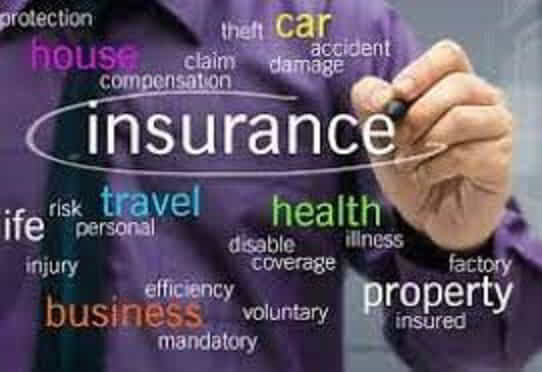
It's so important to protect what you have
So, it does not matter what you are insuring, be it your mobile phone, house, car or yourself, it’s important to have protection. We work hard during our lives to amass wealth, nice things, go on holiday, buy luxury items etc. Once we have bought them, we need to protect what we have.
If something happened to us or our partner that stopped our growth and prosperity, then we could start to go backwards. And nobody wants to do that. The story of the man who had a goose that laid golden eggs. Would you ensure the goose in case it stopped laying? Most of us would say: “Yes we would, it makes sense”. Many main wage earners are still not insured and therefore they are taking a risk. Is it worth it? Why not take a look at Taps under life insurance and see for yourself?
Most insurances are renewable annually and we should definitely take a small amount of time to search around each year to get the best deal. There are a number of companies that are now willing to do the work for you and shop around for the best deals each year on all your renewable insurances. We list them on our site. Why not let them do the work and save you the time?
This Drive discusses some of the details and help you need to make sure that not only do you get the best deals but you also make sure they stay the best deals.
This is a HUGE subject which we’ve broken down into sections which you can visit
Facts About Insurance
PEOPLE IN THE UK are without life insurance
was paid to 138,000 customers or families as a result of claims on protection insurance policies, an average of £12.5m each day.
Record amount paid out to help families cope with bereavement, ill health, and injury Insurers paid out a record £6.2 billion in 2020.
who buy income protection insurance do so because of COVID-19, 2022

House Insurance Is this important?
House insurance is very competitive and, similarly to car insurance, you need to check it out annually and move if your current supplier pushes up the prices. There are a number of organisations specialising in making sure every year all your insurances are reviewed and changed if they can find a cheaper solution.
The key point to remember with house insurance is never under-insure. If you have a large claim the assessor will come and carry out an assessment. If they find out you’re under-insured the company will reduce the claim payout.
Another point with declarations: you must declare previous claims, as in the event of a large claim the insurers will check with other companies. Always, and I know it’s boring, read the small print. Cheap premiums in comparison to others indicate something is missing.
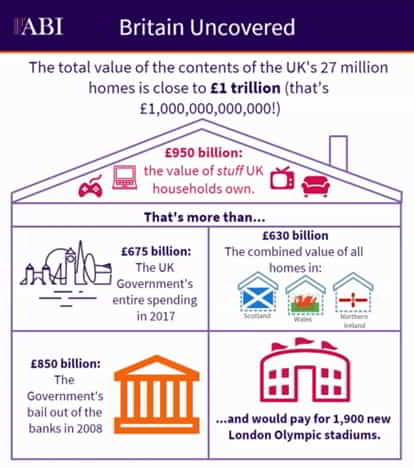
Check the policy for things like restrictions. For example someone living near a river might not be covered or you may not know your new property is in a flood area.
Finally, if you’re specifying your needs over the phone to an advisor, check when the policy arrives that it covers everything you asked for. You cannot later go back and say: “I asked over the phone for this and now find it’s not covered”.
The ABI calculate British households have a lot of stuff...
The ABI in 2018 noted:
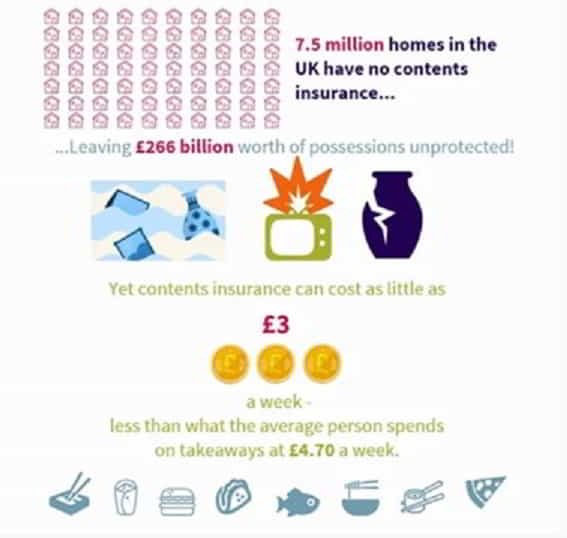
The ABI say 28% of households have no contents insurance
Yet the cost of home contents insurance has fallen to a record low.
On 1/2/2019 the ABI reported that: ”The average weekly cost of home contents insurance is now £2.40 a week- less than the average weekly spend on takeaway meals.”
Further, they noted: The average price paid for buildings insurance, at £258, fell by 8% on 2017 to its lowest level since 2015.
While the average price paid for combined buildings and contents insurance, at £307, rose slightly by just over 1% on the previous year, it was still the second lowest figure since ABI started collecting the data in 2012.
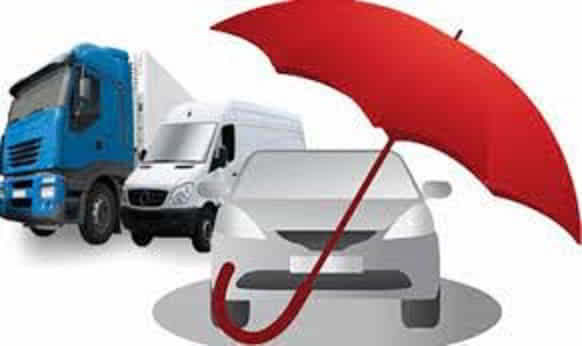
Car and Vehicle Insurance
Why is this important?
With car insurance it is highly competitive and it is advisable to shop around or let a specialist company do it for you. You really need to check the fine print even more than house insurance and make sure you get the cover you need. It’s easy to cut £50 off the annual price by removing the travelling abroad exclusion. Don’t be caught out as you may not be insured driving in another country.
Many insurers now remove the ability to drive another car on Third party liability, or restrict ages or who can drive your vehicle. If you don’t check and a claim occurs you may be refused, and that could cost you a lot of money. With vehicle insurance they have now started to offer extra cover at an extra cost such as legal, gap and accident gap cover. It’s always wise to listen carefully to each option and decide: can I afford not to have that?
Click on the tab on the right to see the table
The number of police seizures of uninsured vehicles has risen by 4% over the last year, with 121,000 cars being seized in 2015 compared to 116,000 in 2014. Police have recorded 142,000 seizures in 2016.
MIB (Motor Insurers’ Bureau) has confirmed that the UK’s 1.5 millionth uninsured vehicle has been seized in Haringey, North London. The 23-year-old male was caught by the police driving his Vauxhall Corsa without insurance. Don’t let an uninsured driver take your no claims bonus, make sure you’re adequately protected.
The ABI report (on 24/1/2019):
The average price paid for motor insurance in 2018 was £477, down 1% on the previous year.
In line with the seasonal trend, the average price paid for cover in quarter 4 of 2018 rose slightly on the previous quarter, up by 2% to £479. However, this was the lowest quarter 3 to quarter 4 rise since 2013. The rise in average premiums reflected lower car sales, with insurers’ fixed costs needing to be spread across fewer motor polices.
There’s a lot more information on motor insurance on CarDrive – to have a look click the link above – this will open in a new window.

Pet insurance
This is an interesting area. Some people totally believe in pet insurance and others don’t. Again it’s really down to your financial situation. Pet insurance is cheap when the animal is young and a lot more expensive as the animal grows older and is more likely to suffer from bad health. If you’re unlucky and your young animal has an incident that requires major work by a vet the cost can be thousands of pounds. If you do not have the cash to pay then its best to take out insurance.
It’s all about risk and how much you are prepared to take. Some people take out insurance and over 15 years their pet never goes to the vets. But they would say: “that’s a lot of money for no claim and you get nothing back, but you have had peace of mind”. Some people have really sick animals and are always at the vets.
It is best to think very pragmatically about pet insurance; if a major incident occurred, say costing £1,000, and you could not pay the bill from savings then its best to insure.
When visiting a vet today it’s extremely expensive with many charging £30 for a consultation lasting 5 to 10 minutes. The vet will take a look at your pet and diagnose the problem.

Click on the tab on the right to see the table

This may result in medication or injection. It is always advisable, if the vet is going to inject your pet, to ask what the injection is. If it’s simply a liquid version of the medication [the vet will say it works faster but tablets will dissolve in 1 hour in the stomach] then refuse it and just take the tablets. As humans, if every time we went to the doctors they injected us, we would go less often as it’s not pleasant. So don’t let it happen to your pet unless it’s a pain killer to reduce pain. Vets charge £30 for an injection!

Many veterinary practices not only charge high prices for consultation but the medication is often 20 to 100 times higher than the price you can pay on the internet. You can ask your vet for a prescription [they will charge £15 to £20 for the service] like you would at the doctors, and use this prescription to buy online at a fraction of the cost. If your pet is on long term medication it could be significantly cheaper to buy online.
Shopping around is critical to find the best deal. Make sure you check the exclusions and remember previous medical ailments are not always covered under a new policy, so read the small print.
MoneyHelper have information on pet insurance.

Travel insurance
Travel insurance is a bit of a no brainer to be honest but thousands go on holiday every year without it. I guess it’s all to do with risk: what are the chances of me needing to claim? Well let’s look at some of the statistics:
• £545,000 a day Travel Insurers pay out to help people who need medical treatment abroad.
• 18-24 year olds are the most likely to travel uninsured, with 40% going without.
• 25-34 year olds are close behind with 38% travelling without insurance.
• The most cautious age group is those aged 55+, where just 14% of travellers go without travel insurance.
The overall average cost of travel insurance is £37 and just £21 for those aged between 26-30. 2018. ABI
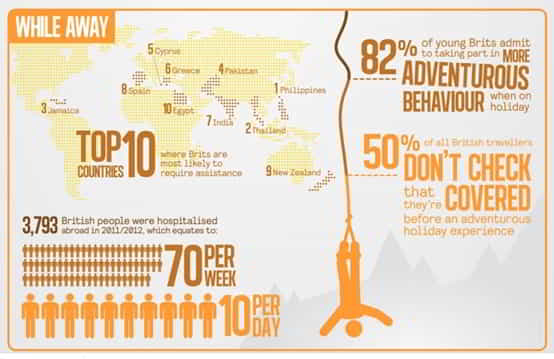
What insurers pay out
In 2016, £1 million a day was paid out by travel insurance companies – but what was being claimed for?
- 494,000 individuals and families claimed on travel insurance in 2016.
- The main claim was for emergency medical treatment – with over £196 million being paid out to 166,000 travellers.
- The average medical expense claim was £1,200.
- £128 million was paid out to 160,000 people for cancellations.
- The average cancellation claim was £800.
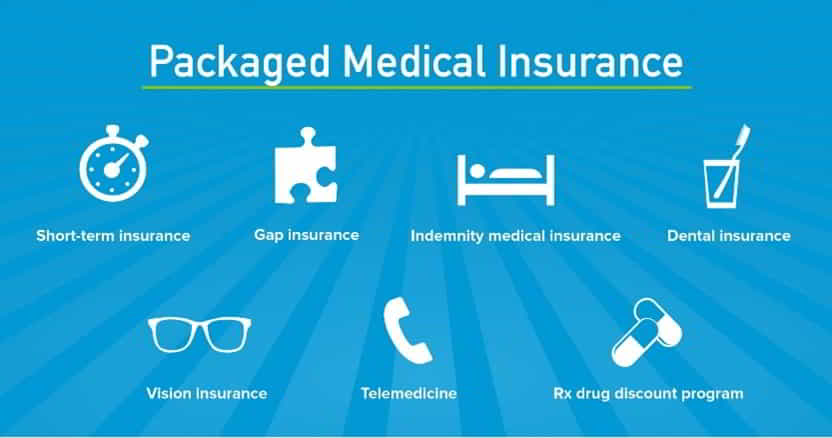
Medical insurance?
When considering medical insurance, it is quite simple and we would say don’t get caught up with all the jargon. In simple terms if you have enough money to buy the full service of medical insurance that provides a private hospital, private bed, fast admission and quick diagnosis then that’s a no brainer. But for many this service is beyond their budget. Do we really need a private hospital? [Often private hospitals are not as well equipped as the NHS].
For many private patients, whilst having a private consultation the consultant will book the NHS theatre for their procedures. I guess the key thing is: if we have something wrong with us, we want to find out as quickly as we can, and get it sorted as quickly as we can.
Not many people have medical insurance in comparison to other insurances only 4 million [10%] in the UK [internations.org private-health-insurance-in-the-UK 2018].
Take a look at the different types of cover. Most products start off as basic and you add on extra cover dependent on your needs. You can get health insurance at a cheap rate if you cover what’s important to you without opting for the luxury private room with private Sky TV.
There is some information on whether you should have private medical insurance on the unbiased website.
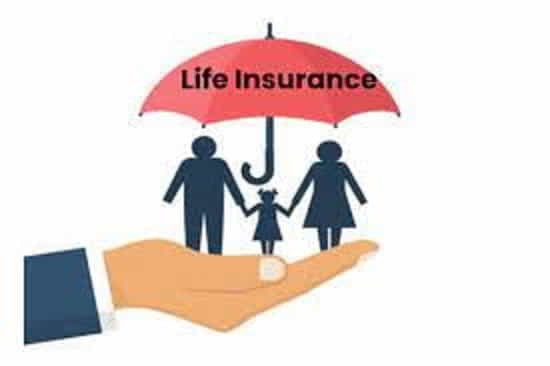
Life insurance
Life insurance isn’t complicated and it’s not expensive if you’re in reasonable health. You can buy it online without advice or you can have an advisor who can work out exactly what you need.
We have detailed below our example of why you need life protection. It’s called Taps. It’s easy to understand. It is important to have a balance of Life protection for you and your partner including critical illness. Many people take out just life insurance which is not good if you become critically ill and cannot work for 2 years. So it is best to take out both.
The only words of caution are: firstly make sure you have the right amount. If in doubt seek advice. Secondly beware of cheap. Cheap usually means something has been removed or there are clauses that exclude certain things. Check out our comparison site today on our Partner page and see how little it can cost you to protect you and your family properly.
There are a number of scary statistics in this Drive with many people, even those with mortgages, not having life insurance or critical illness cover. Those people are taking a real gamble that nothing happens to them. Is it worth such a gamble when you strive to improve your lifestyle and standard of living?
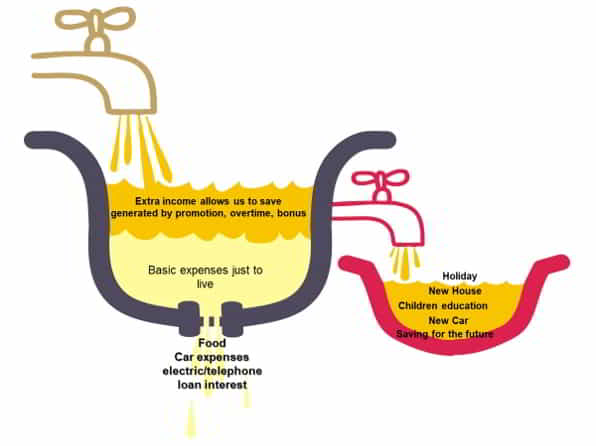
Taps - your income
People generate income from two sources: working and investment.
• We work all our lives to:
• Raise our children
• Buy a home / car
• Take holidays
• Increase our standard of living
• Provide for our childrens’ future
• Have peace of mind
• Retire with a reasonable pension

Taps - you start to save
All these items are possible on one condition – that your income continues.
We fill our sink with money. Usually, the more we earn, the more we spend. Eventually we start to save.
We think about what we're saving for ...
- a holiday
- moving house
- our children's education
our hopes and dreams

Taps - what happens if your income stops?
Living expenses for the family continue.
Food, household bills, mortgage payments, loan interest. Any immediate payment from work will only last so long.
How prepared are UK households?
Life insurance is a way of providing for your family’s financial future after you have passed – but how prepared is the UK? We looked at the number of households with mortgages, and some other costs that would need to be covered by the surviving family in the event of death.
- 11.1m households in the UK have mortgages.
- £124,732 average outstanding mortgage debt in August 2018.
- 42% of people with a mortgage have no life insurance in place.
- Only 50% of households with mortgages have life insurance.
- £19,500 average price of household bills for a year
- £2,770 average food bill per house per year.
- £4,271 is the average funeral cost, more than double the cost in 2004
Sats from LifeSearch’s 2017 Health, Wealth and Happiness report
Different types of life insurance
There are many different types of life and critical illness products around so it’s good to understand a little about each one and whether they meet your needs. If in doubt you can ask an advisor. There is a link to the Government MoneyHelper which explains the different types of cover you might need and how much it costs.

Mobile and gadget insurance
Most mobile networks offer this protection but you can also cover all your gadgets against loss, damage, theft or accidental damage outside the home via your house insurer. It’s worth comparing what the costs are.

Commercial and Business insurance
Often this type of insurance is a specialist subject and requires someone with knowledge to advise you on the best product and cover. Different types of commercial insurance include:
Public liability insurance - In case you or your employee injure someone or damage their property.
Professional indemnity insurance - For if you or your business make mistakes that cost a client money.
Employers’ liability - In case an employee gets sick or injured while working for you.
For visitors
Why don't you join us?
You can register to join us as a member, when you’ll be able to download our stuff and comment, or as a YouDriver when you’ll also be able to check your health and set up your own action plans to make some improvements. If you’ve already registered, sign in below. Or let us know what you think.
The benefits of insurance
The benefits of insurance
This video from InsuranceEurope explains the role of insurance and its contributions to the economy.

Next Steps
It doesn’t matter what stage you’re at – it’s important to be the best you can be. At the end of the day it’s about taking personal responsibility – You Drive!
It’s really your choice. You can find out more information about the subject, or see other institutions that can help by going to Support. There you will find organisations, training, coaching, self-help courses and other items to support your personal change. We have also started developing a panel of experts to provide info, advice, help and support.
Get Support
There are times when you need some help to meet your aims – a helping hand. That might be an organisation that can provide you with some help, some specialised information, a particular book or tool to help, or just getting some background reading material.
We have a lot of items which appear on our Drives and other pages, which you can go to by clicking on the picture or link. Some contain affiliate links and we may receive a tiny commission for purchases made through these links.
If you know of anything which could help you or our other visitors then please click the button on the right, which will take you to a Contacts page where you contact us.
Experts
We are compiling a list of experts who can provide advice, help or specialised services. You will be able to access these experts from anywhere on our site you see our ‘Experts’ symbol. Click the green E to see what our Experts list will look like, with a couple of imaginary ‘experts’ added!
More Information
Scroll down to see more information on this Drive.
If you register you can also download reports, white papers, quizzes and other collaterals. We will never ask you for any financial information, and we’ll only send you the information you want. You can register for our site either above or in the footer below. You can provide your own questions and experiences in order to help other members. We only moderate for spam and inflammatory language – see our moderation policy.
If you’ve found this interesting, then please share it on social media. Choose your network!
More information
Yale Y500/187/1 Combination Key Safe Box
4-Digit Combination, Wall Mounted, Black/Silver Finish, Suitable for Rentals or Private Residences
Key Safe: Yale Y500/187/1 Key Safe is the best solution to securing your keys outside your property
SinoTrack Vehicle Car GPS Tracker,
Anti Lost Locator GPS Tracker Car Mini Real-Time Tracking Device, Waterproof Car Motorcycle GPS Tracker Device for Car Truck Taxi, Support Tracking Platform
SinoTrack gps tracker With 30 days no-questions-asked return policy. Please feel free to contact our customer service if you have any problems
How To Save Money On Your UK Private Medical Insurance
What The Insurers Don’t Want You To Know! Kindle Edition
This is a guide to show UK consumers how to get the best price for their private medical cover whilst simplifying the process by highlighting time-efficient and money saving methods.
MoneyHelper give some guidance on contents insurance
The ABI have a series of key facts about insurance – download it here.
















